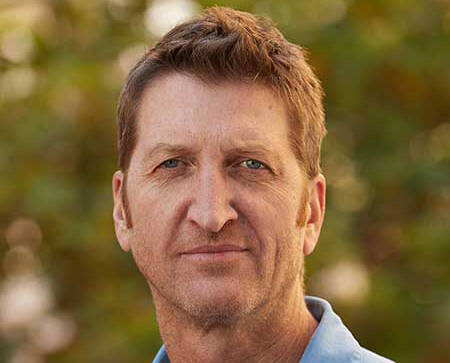Who can residents trust about COVID-19 vaccine?
The United States witnessed a grim statistic on Oct. 1: over 700,000 deaths due to the coronavirus. The pandemic, fueled by the delta variant, continues to ravage parts of the country, leading to rationed health care and overwhelmed mortuary services in the worst-hit hot spots in Idaho, Alaska, Texas and other Gulf states.
Here in Boulder City, while approximately 57 percent of residents are fully vaccinated (which is about equal to the national average), we and the rest of the country remain well below the 90 percent vaccination figure many health experts suggest we will need to reach herd immunity — when enough residents are vaccinated to effectively stop the widespread transmission of the virus.
For all intents and purposes, reaching this level of vaccination would mark the end of the epidemic in Boulder City, and the rest of the country. With plenty of free vaccine doses widely available for months now, why are so many millions of Americans, and so many Boulder City residents, hesitant to receive the vaccine?
A recent national poll by Axios/Ipsos shows that the dominant issue for most people who are hesitant about — or outright refuse — the vaccine is mistrust, especially of the federal government. Compared to the 91 percent of fully vaccinated adults that have a “great deal” of trust in the federal government to give accurate information about the coronavirus, only 35 percent of those who have little or no trust in the government to provide accurate information have been fully vaccinated. The distrust among the unvaccinated also extends to the nation’s top infectious disease authority, Dr. Anthony Fauci, among whom only 27 percent trust his expertise and recommendations.
These are striking numbers and also reveal the political divide on this issue. About 90 percent of Democrats who have “great” or “fair” trust in the federal government’s information on the virus are fully vaccinated. Among equally trusting Republicans, the percentage drops to 70 percent. And a remarkable 80 percent of non-fully vaccinated Republicans have “little” to “no” trust in the federal government to provide accurate information on the pandemic at all.
So, who can those who mistrust the federal government’s many health experts and agencies, including the Food and Drug Administration, the Centers for Disease Control and Prevention, and the National Institutes of Health, turn to for trusted advice and information about the COVID-19 vaccine? Their doctors. Indeed, a recent Kaiser Family Foundation study found that 85 percent of respondents in their national poll identified their doctors as the most trusted source for information on the COVID-19 vaccine, no matter their gender, ethnicity or political beliefs.
Are unvaccinated Americans, including friends and neighbors here in Boulder City, talking with their doctors about the COVID-19 vaccine and their concerns about its public health necessity, safety or effectiveness? At this point we don’t know, but one might imagine that many of us that are vaccine hesitant or who have firmly decided against receiving the vaccine have not consulted with our doctors.
After all, the American Medical Association recently reported that over 96 percent of its doctors are themselves fully vaccinated, with half the remaining 4 percent planning on receiving a full course of the vaccine soon.
Thankfully, this percentage appears impervious to influence by major political affiliation. A recent Gallup poll found that 35 percent of doctors considered themselves Democrats, while 27 percent identified as Republicans, and 36 percent as Independents — mirroring the rough proportions of the American electorate itself.
So for those in our community who have been led to believe the vaccines are not necessary, safe or effective, or who just don’t quite know who or what to believe, go ask the medical expert you probably trust most. Go ask your doctor. It might save your, or a loved one’s, life.
The opinions expressed above belong solely to the author and do not represent the views of the Boulder City Review. They have been edited solely for grammar, spelling and style, and have not been checked for accuracy of the viewpoints.
Daniel Benyshek is professor of medical anthropology at UNLV and a proud Boulder City resident.





